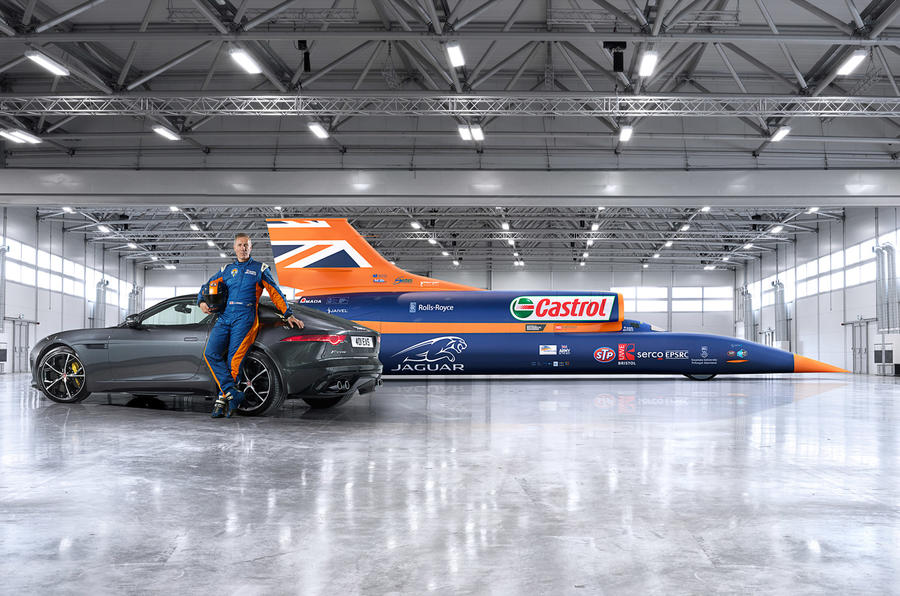Last night, along with a few other hacks, I was at a Jaguar Land Rover dinner, and very enjoyable it was, too.
For most of the evening we talked back and forth about JLR’s successes and its even more stellar prospects.
Then, just before the meeting was due to end, a familiar-looking tall bloke arose from the fringes of the meeting and started talking about driving at 1000mph across a South African desert in 2016.
It was, of course, Andy Green, the 52-year-old RAF officer and former fast jet pilot, world-famous for his exploits in various land speed record cars, the most important of which, Thrust SSC, he drove at 763.035mph in September 1997, breaking the sound barrier on land for the first time, 50 years and one day after the equally legendary American pilot Chuck Yeager did it in an aircraft.
Green is about to start doing it all again – only faster – in the Bristol-built Bloodhound, starting with 200mph shakedown runs at Newquay Airport next year, then 500-800mph shakedown runs on a specially prepared 12-mile track at Hakskeen Pan, near the Namibian border in South Africa.
I’ve interviewed Green a few times, and also heard him talk in public, but nothing prepares you for his passion, his eloquence, his technical grasp and his all-round brilliance.
In a riveting 20-minute address he talked us through the extraordinary sequence of events on the way to a 1000mph run – during which time he will spend less than four seconds in the all-important measured mile – and then through the sequence that will turn the car around (it's got a turning circle of 250m), refuel it and have it running back the other way inside the hour the regulations require. Later, we all sat around talking land speed records into the small hours.
For Green and Richard Noble, who hatched this Bloodhound idea in the pub a year or two after they’d shattered the sound barrier, this is a way of life.
But what dazzles me is how Bloodhound genuinely has come to be an immensely powerful educational device and a way of attracting younger children to the joys of STEM (Science Technology, Maths and Engineering) subjects at school.
According to Green – who has 1000 such killer facts at his fingertips – our country produces roughly half the number of graduates in those subjects that it knows it needs for the future.











Join the debate
Add your comment
If only the Government
And another thing - why can't engineers have doctorates in this country like they do in many European countries? Every middle class mum wants her son or daughter to enter "the professions" as it ensures a degree of social clout.
Say you are an engineer and people look at your fingernails. That outdated snobbery probably goes all the way back to the industrial revolutions but it was engineers that created that revolution and it's about time they were as revered as, for example, members of the House of Lords......
Awesome Project
The very definition of
hope you are